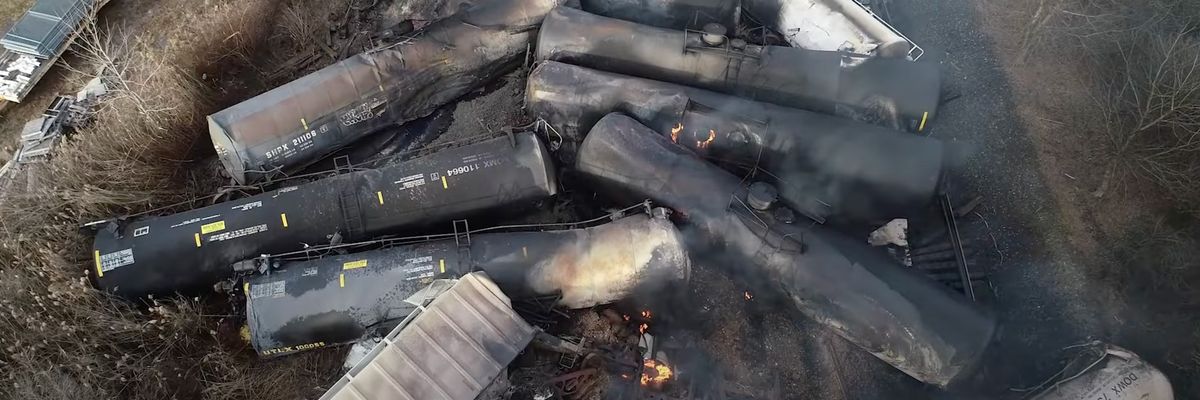More than halfway through President Biden’s term, there remain numerous critical appointed positions across the executive branch that remain empty. My colleagues have written extensively about the scope of this confirmation crisis. Some notable remaining vacancies include a seat on the Federal Communications Commission, around two dozen US Attorneys, and a seat on the National Transportation Safety Board. While much of this is due to obstruction by Senate Republicans, the importance of advancing good nominees remains. The fixes to the procedural delays are beyond Biden’s control (though not necessarily beyond Senate Majority Leader Chuck Schumer’s). But fighting to get the right people into positions of authority is still a top priority. As the mantra goes: personnel is policy.
But there is one critical, if low-profile, position that has not had a nominee at all: administrator of the Pipeline and Hazardous Materials Administration (PHMSA). Interestingly, despite all of the media attention on the horrible February derailment of a Norfolk Southern train in East Palestine, OH — including increased coverage of the response effort from the National Transportation Safety Board (NTSB), the Environmental Protection Agency (EPA), and the Department of Transportation (DOT) — there has been little attention on PHMSA itself.
PHMSA is an administration within DOT and is directly responsible for regulating dangerous trains. The weakened rule around high-hazard flammable trains is the work of Trump’s PHMSA. New rules addressing those shortcomings will also fall on its plate. And PHMSA’s authority extends well beyond just those rules, as it is responsible for regulating the safety (as its name implies) of pipelines and a litany of other transportation issues around moving dangerous materials. This includes flammable fuels like oil, natural gas, and coal, as well as radioactive substances and dangerous chemicals such as ammonium nitrate-based fertilizer. It’s a small and obscure agency, but undoubtedly a very important one.
The fact that such an important post as the PHMSA administrator has been purposefully left vacant is telling. It shows a lack of recognition around the post’s seriousness. And while the blame ultimately goes all the way to the White House, we would be remiss to absolve Secretary Pete Buttigieg. Presidents are famously busy and rely on input from their cabinet to determine what personnel decisions need to be prioritized. This is especially the case with technical offices, where the President depends on the subject matter expertise of their cabinet secretaries.
Additionally, President Biden, by not naming a nominee, has entrusted Buttigieg with deciding leadership at PHMSA. Unlike other administrations within DOT, the deputy administrator of PHMSA is appointed by the Secretary of Transportation without any need for presidential consultation or approval.
Tristan Brown, PHMSA’s deputy administrator, was handpicked by Buttigieg. That means that even more than is the case with other DOT administrations, the successes and failures of PHMSA ultimately go back to Buttigieg. As an aside, entrusting the deputy administrator with the full workload of the administrator here is a departure from Secretary Buttigieg’s handling of a similar vacancy at the FAA, where the deputy was bypassed for acting administrator, despite federal statute stating he should have gotten the job. PHMSA has no such explicit statutory language for its deputy. Also unlike PHMSA, the Transportation Secretary does not appoint the deputy FAA administrator — the President does.
While there have been encouraging signs lately of Buttigieg leaning more into his role of a regulator, including blocking the proposed Spirit-JetBlue merger, he still has a lot of work to do. Seeing Buttigieg talk about the rail industry obfuscating regulation and publicly pressuring airlines to get rid of junk fees shows he can take on the corporations he oversees. But for two years now, he has spent much of his term as an administration spokesperson on TV while allowing critical DOT business, like banning those junk fees, recovering billions of dollars owed to consumers, and improving rail brake regulations, to slip through the cracks.
Buttigieg is good with the media, including Fox News, and that has value to the administration, but the technocratic processes he oversees cannot come at the expense of a good media hit. The post he signed up for is a notoriously low profile one, partly because of how down in the weeds it can get. It’s fine for Buttigieg to have a higher media presence, but he cannot choose cameras over his unique legal obligations to regulate avaricious transportation companies.
